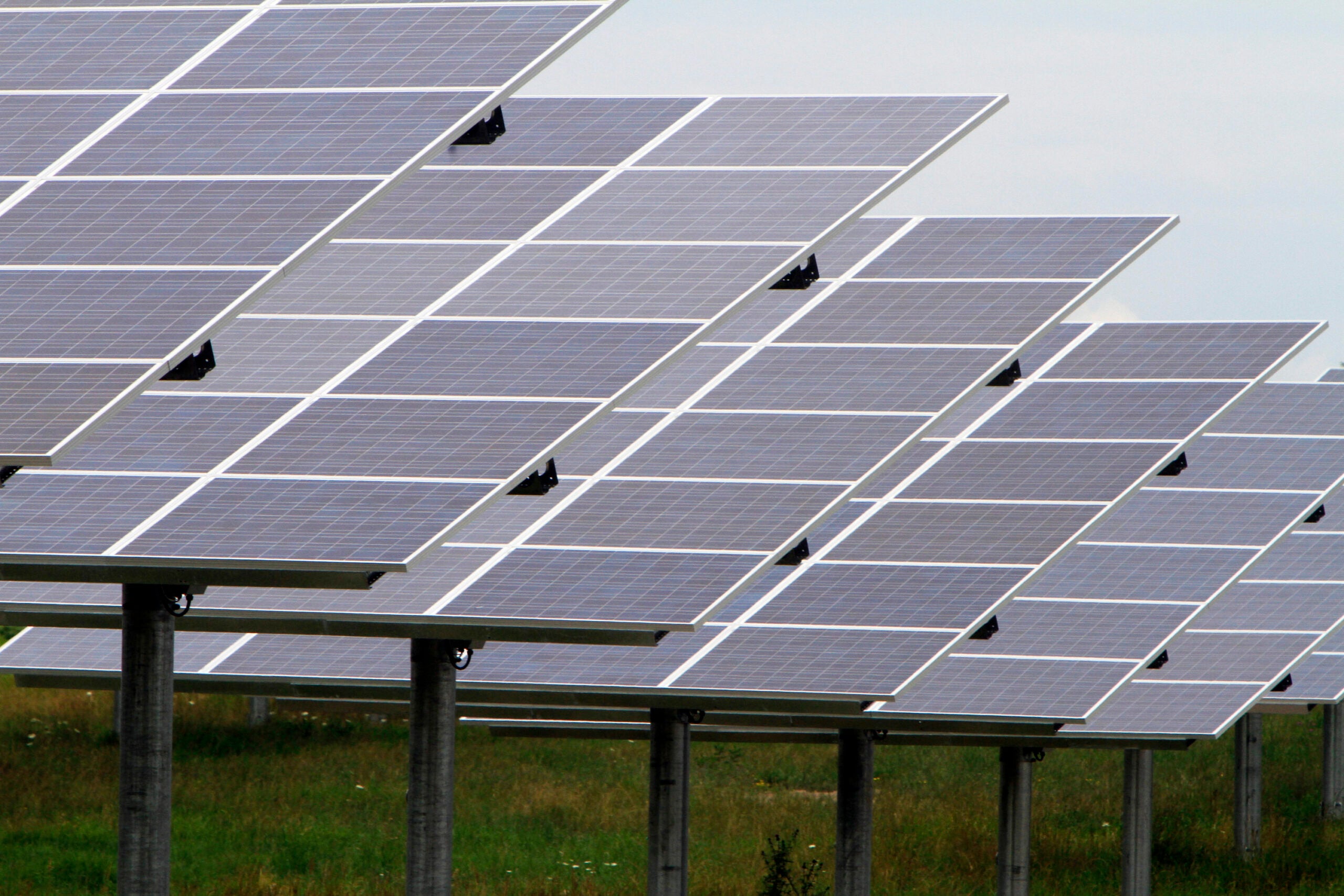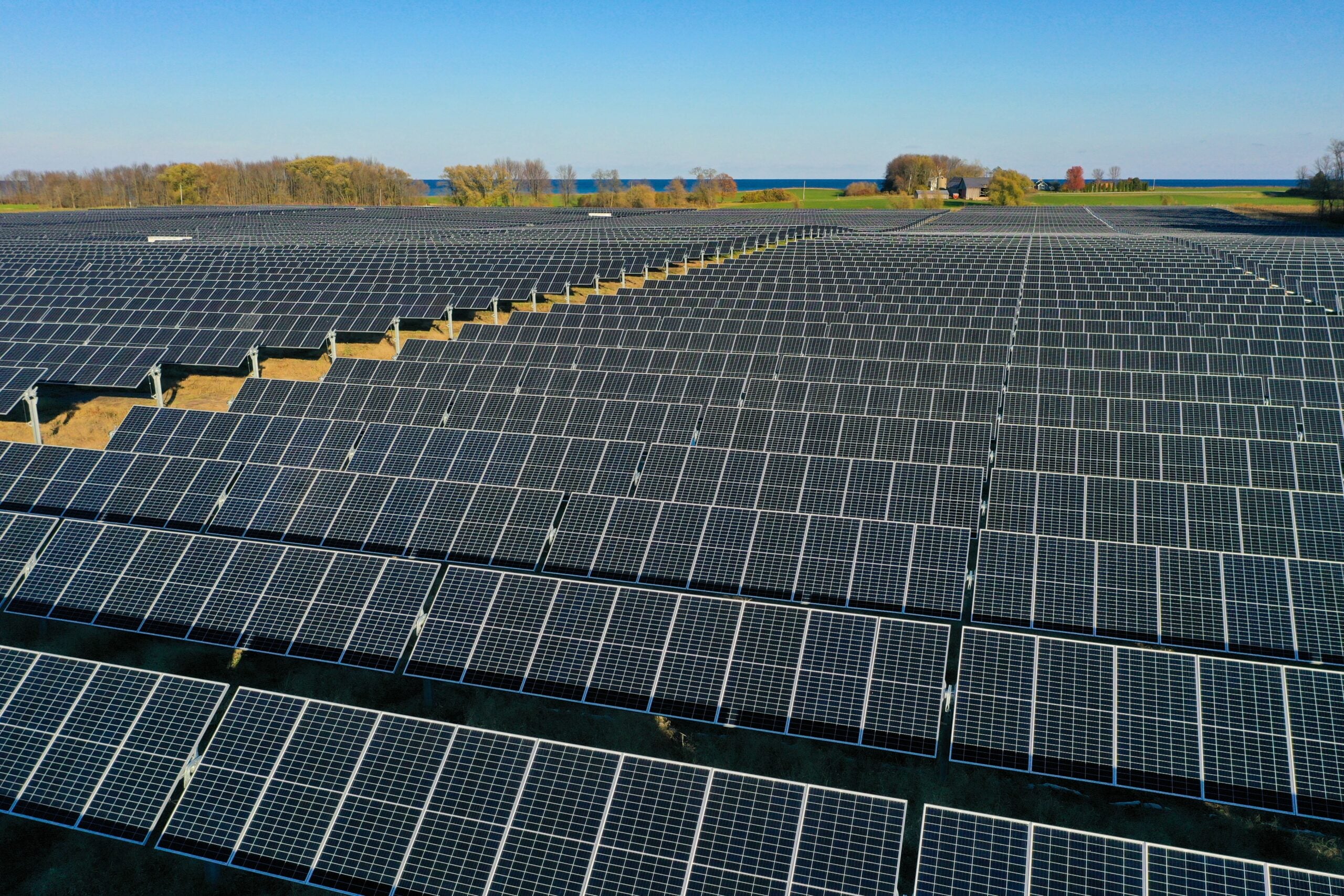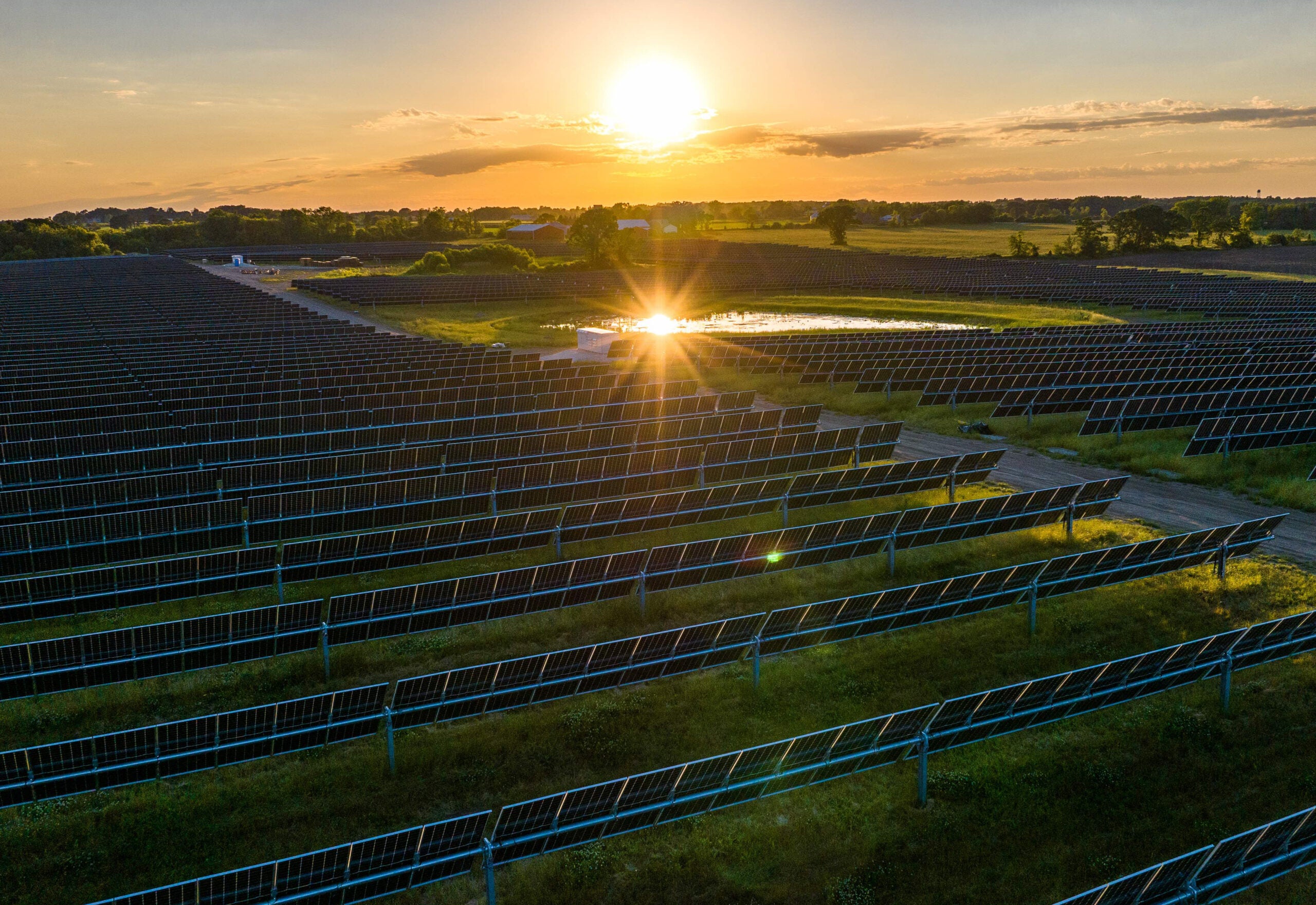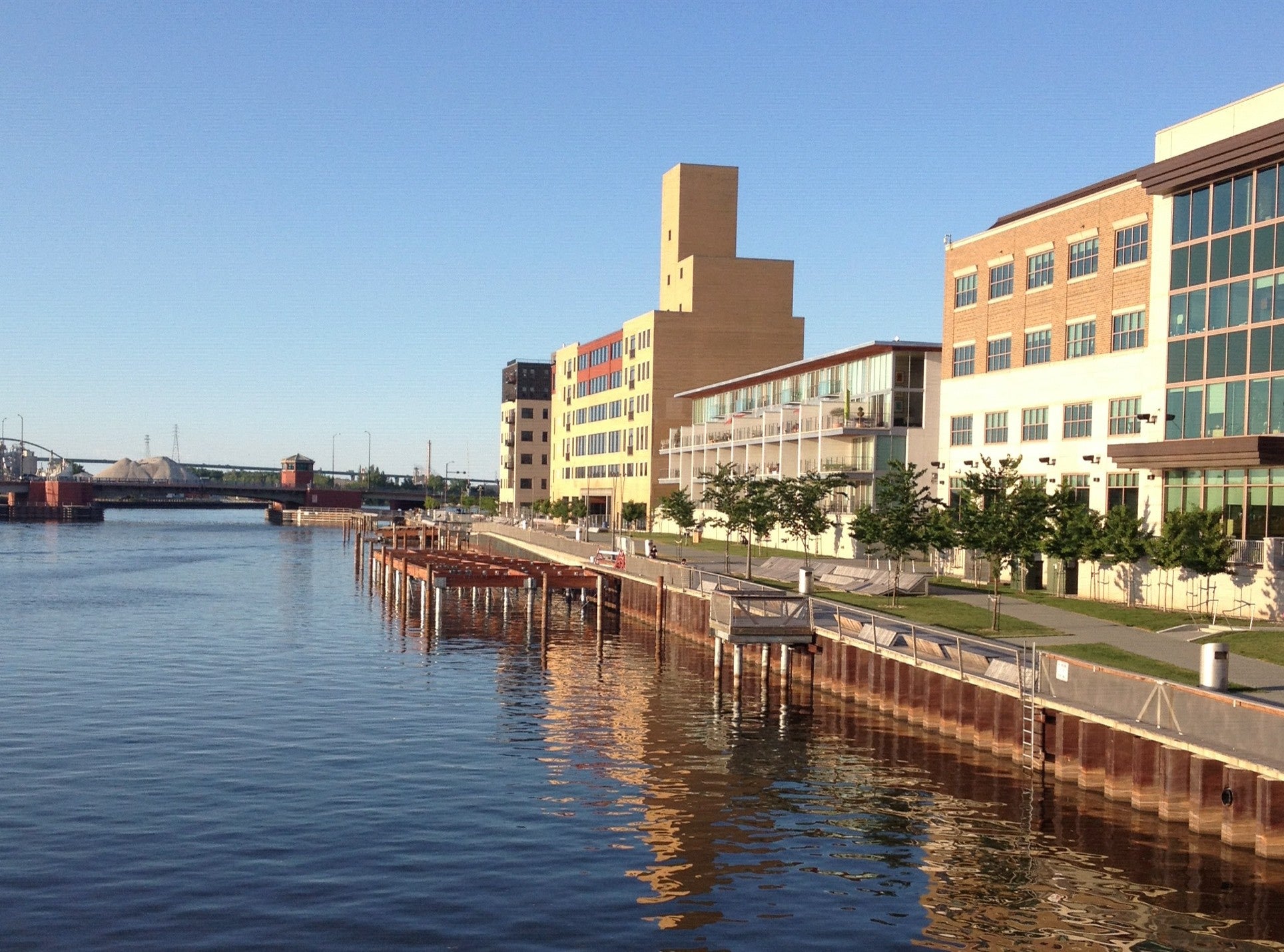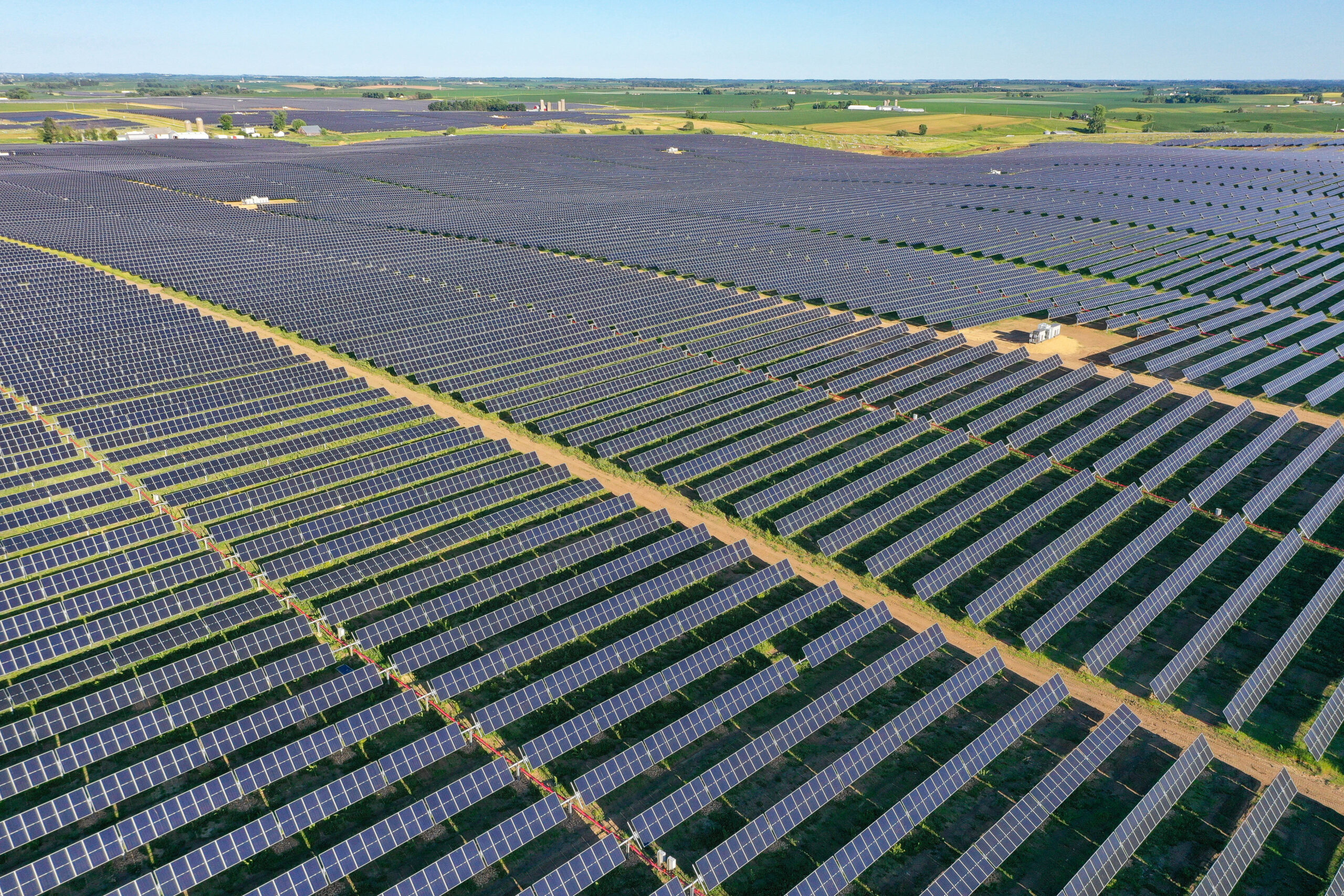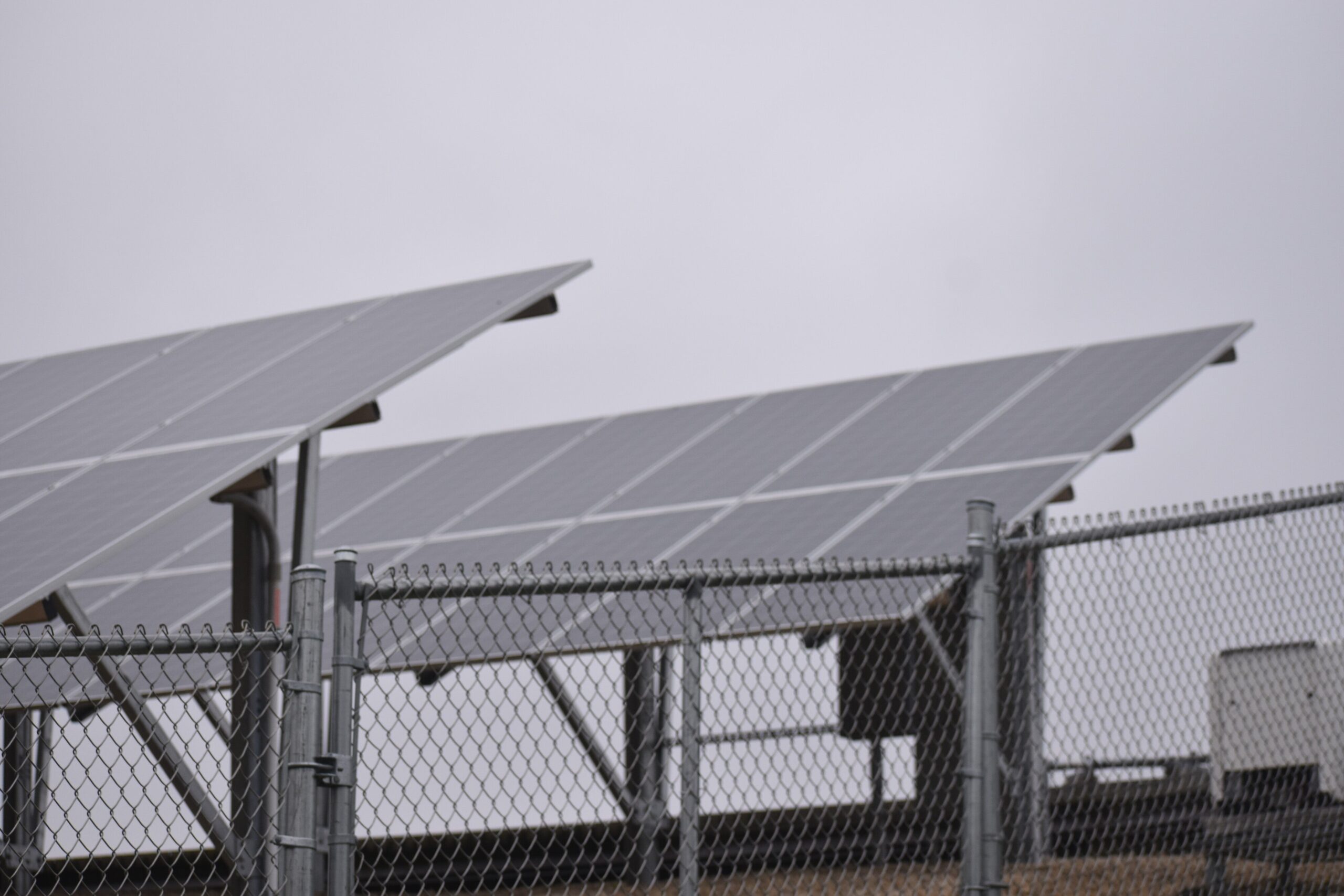As clean energy jobs soar across the state, Wisconsin schools are helping their students break into the industry while cutting energy use in school buildings.
A new resolution, which heads to the Milwaukee School Board for a vote Thursday, would push the district to cut greenhouse gas emissions 45 percent by 2030 by investing in clean energy projects and making school buildings more energy efficient.
School Board President Bob Peterson, school board directors and community leaders spoke at a press conference Tuesday, saying the resolution would help the environment and assist students in finding careers in clean energy.
Stay informed on the latest news
Sign up for WPR’s email newsletter.
If adopted, the district would use the projects to teach students about the industry, and dedicate staff and resources toward climate justice education.
Citizen Action of Wisconsin Executive Director Rober Kraig spoke at the event in support of the resolution.
He said Milwaukee schools have been “starved for resources” and unable to update their buildings to be energy efficient, “so a huge conversion of this kind would have a big climate impact.”
“Climate change may be scary, and it is at some level,” Kraig said. “But it’s also a huge opportunity to rebuild and reinvent an economy that lifts all.”
While the resolution itself doesn’t commit funding, Kraig said it’s a critical step toward change. And teaching students about clean energy careers, he said, would also set them up for success after graduation.
In the U.S. between 2015 and 2019, the clean energy industry added jobs 70 percent faster than the total economy. By 2019, clean energy jobs outnumbered overall fossil fuel employment by more than 3 to 1. In Wisconsin, the industry accounts for 69,343 jobs, or 2.5 percent of the workforce.
“This is a huge opportunity to not only create more of those jobs through the investment, but also to create opportunities for people being left out now, who are the people who need it most in our community,” Kraig said.
As it’s grown, the clean energy industry has locked out people of color and women, Peterson said. Over 70 percent of workers are male, and over 70 percent are white. Only about 8 percent are Black.
“And we are in a position as a school district that’s 90 percent students of color to help change that data here in Milwaukee,” Peterson said.
Milwaukee is not the only school district seeking ways to connect kids to green energy jobs.
One of the best ways for students to learn is by bringing renewable energy projects directly to their schools, said Evonne Waugh, the program manager at Midwest Renewable Energy Association for the Solar on Schools project.
With support from the Couillard Solar Foundation, the program provides grants up to $20,000 for K-12 schools to install solar energy systems. Using those projects, the program teaches students hands-on about clean energy careers. Since launching, almost 40 schools in Wisconsin have taken part in the program.
“(Students) are really passionate about being able to make a difference in their world and in the environment,” she said. “For example, by using the energy monitoring equipment that’s included in the project, they can actually see the energy produced by the system and how they’re making a difference that way.”
The projects also have a major impact on schools’ finances, Cal Couillard, founder of the Couillard Solar Foundation, said. Across the state, Wisconsin public schools collectively spend over $175 million on energy costs per year. Most Solar on Schools projects save schools $20,000 to $25,000 each year on utility bills, he said. Cutting those costs frees up money for schools to spend on other programs, and paring down energy use has a major impact on the environment.
But the most important aspect of the program, Couillard said, is getting students excited to join the clean energy industry.
“We’re going to need a tremendous amount of our workforce to move from basically a fossil fuel society to one on renewables,” he said. “We need their help solving this problem.”
Wisconsin Public Radio, © Copyright 2025, Board of Regents of the University of Wisconsin System and Wisconsin Educational Communications Board.
